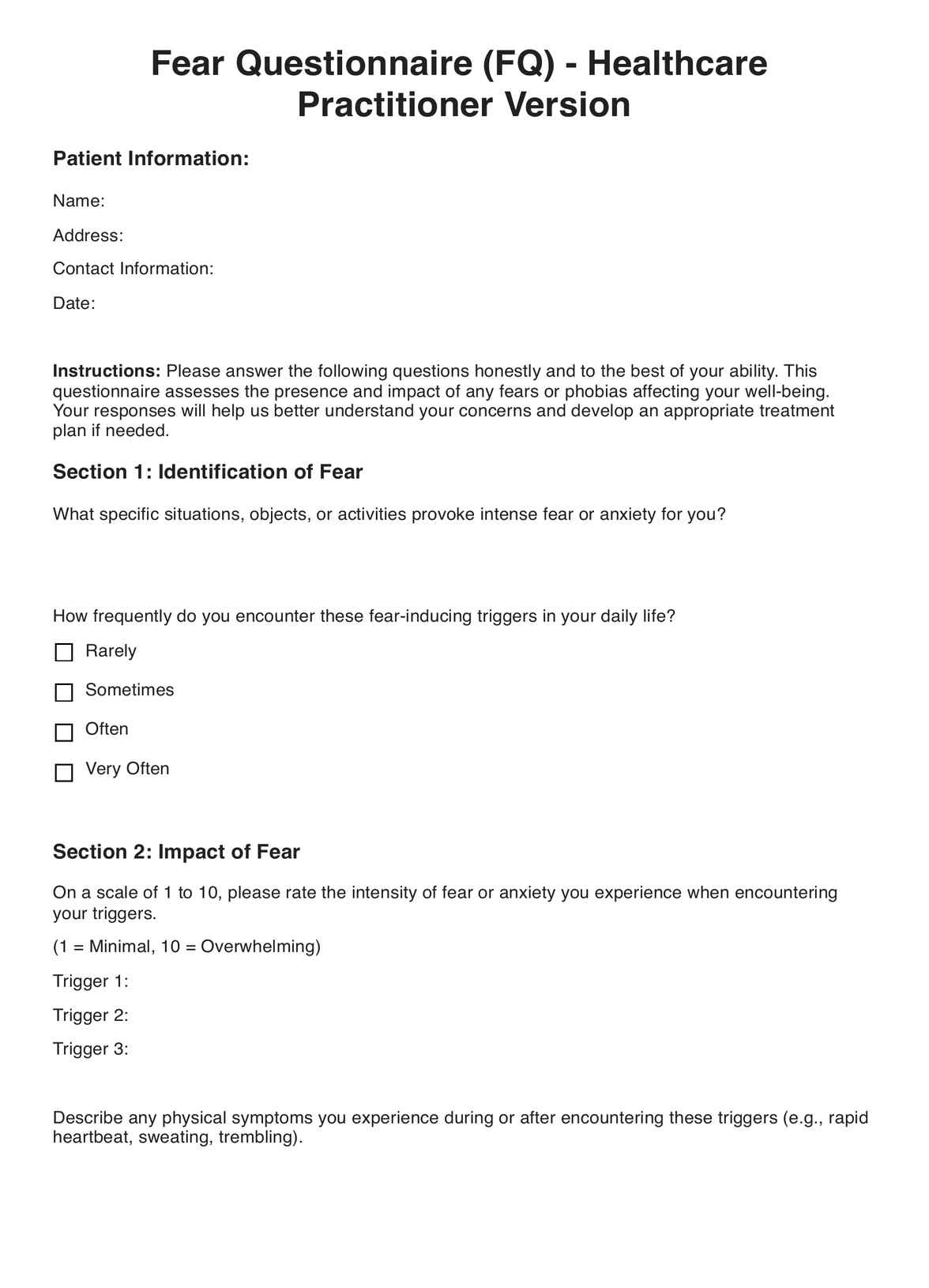The Fear Questionnaire (FQ) is an assessment tool designed to evaluate and understand fears and phobias experienced by individuals. It helps healthcare professionals gather comprehensive information about triggers, intensity, impact, and coping mechanisms related to specific fears.

Fear Questionnaire (FQ)
Assess your healthcare concerns with Fear Questionnaire (FQ). Gain insights into your fears. Prioritize your well-being today.
Use Template
Fear Questionnaire (FQ) Template
Commonly asked questions
Healthcare professionals, including psychologists, psychiatrists, therapists, counselors, and researchers, can use the FQ to assess and address fears and phobias in their patients.
The FQ is typically administered through a structured template that patients fill out. It includes identifying triggers, assessing impact, describing emotional responses, tracking duration, and sharing coping strategies.
EHR and practice management software
Get started for free
*No credit card required
Free
$0/usd
Unlimited clients
Telehealth
1GB of storage
Client portal text
Automated billing and online payments











